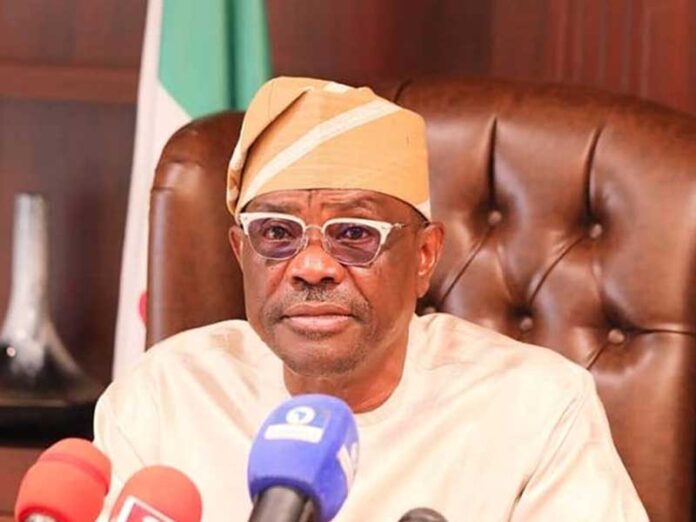The Minister of the Federal Capital Territory (FCT), Nyesom Wike, has declared the controversial On-Street Parking scheme, known as the ‘Park-and-Pay’ scheme, illegal due to fraudulent practices embedded in the contract between the managing contractors and the FCT administration.
Wike made this declaration on Wednesday during a media briefing marking his first year in office.
He expressed shock over the terms of the reintroduced scheme, which initially launched in 2014 but was reinstated in 2023 after the FCT administration signed a staggering N908.3 billion agreement with concessionaires NAJEC Limited and Messrs Automaten Technik Bauman Nigeria Limited.
The contract projected a revenue of N26.93 billion over a 10-year period, with the government receiving only 20% of the total earnings, while the contractors pocketed 80%.
The then FCT Permanent Secretary, Olusade Adesola, who signed the agreement on behalf of the FCT in August 2023, claimed the scheme had the approval of the six area councils and was intended to bring orderliness to the city.
However, Wike stated he was not informed about the scheme’s reintroduction and found the revenue-sharing model highly unfavorable to the FCT administration.
Highlighting the illegitimacy of the scheme, Wike recounted an incident where a colleague, a senior advocate, reported that individuals from the Transport Secretariat attempted to confiscate vehicles under the pretext of enforcing the Park-and-Pay scheme.
This prompted Wike to investigate, leading to the discovery of questionable agreements between the Transport Secretariat and private consultants.
Wike has since ordered that a public statement be issued to inform residents that the Park-and-Pay scheme is illegal.

He emphasized that citizens should not be charged for parking in front of their own businesses or residences.
The Minister further criticized the corrupt practices within the FCT administration, where contracts like the Park-and-Pay scheme were arranged in collusion with secretariat officials.
He vowed to reduce corruption within the system, despite acknowledging the challenges posed by entrenched interests.
“The point I’m making is that, no matter how you shuffle things, you still have civil servants working with you. It is not easy, but you try as much as possible to reduce it to the bare minimum. But we must continue to fight hard,” Wike concluded.




